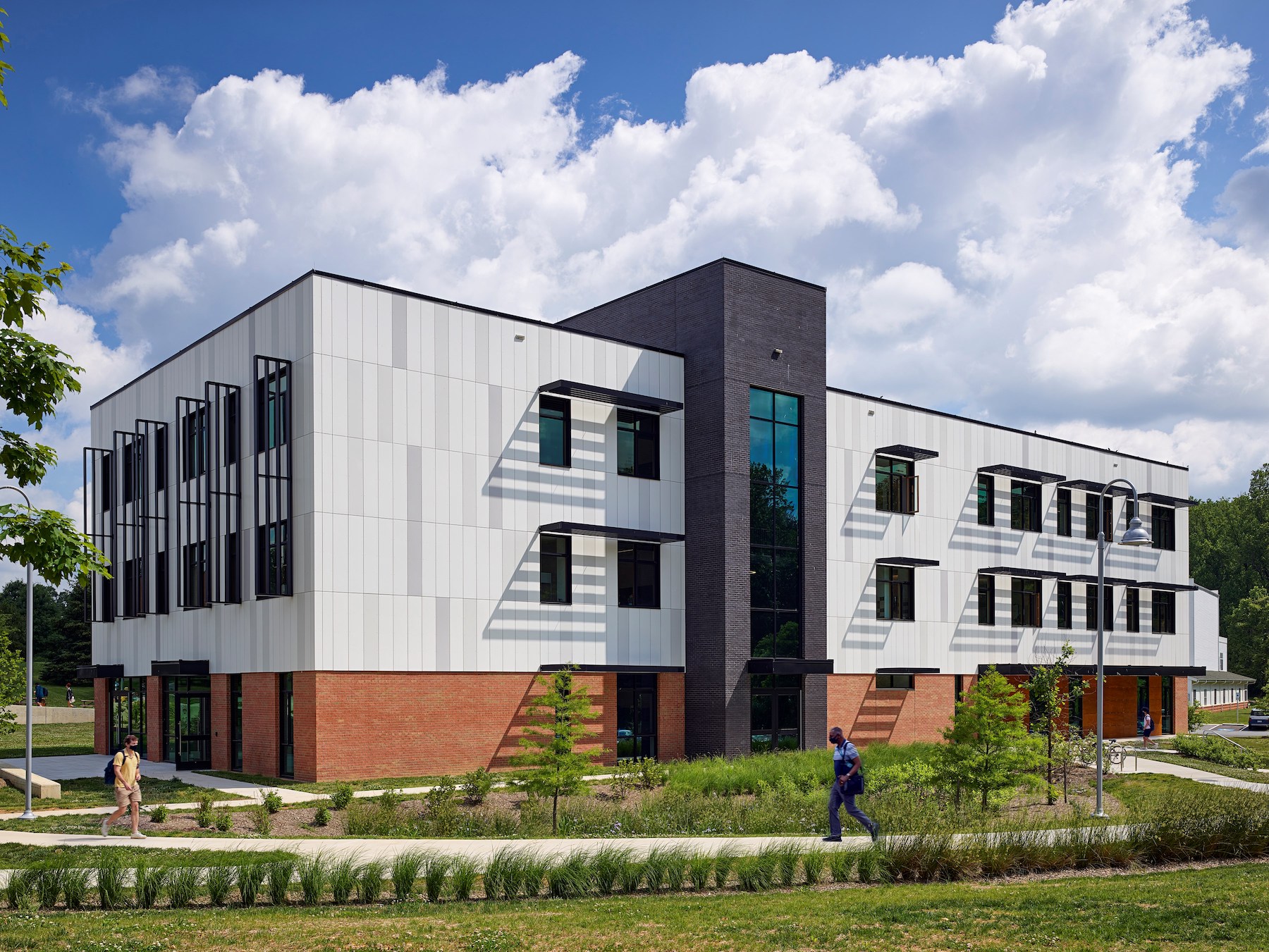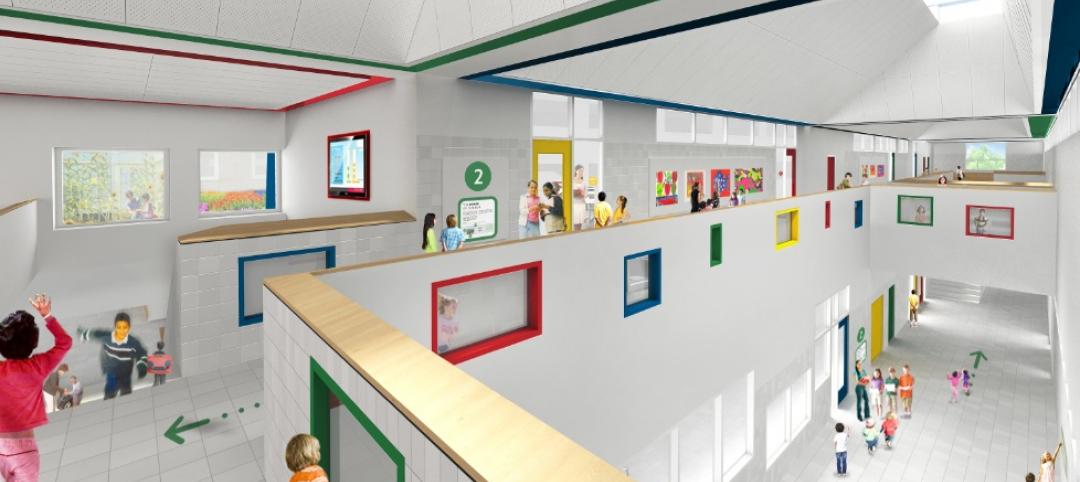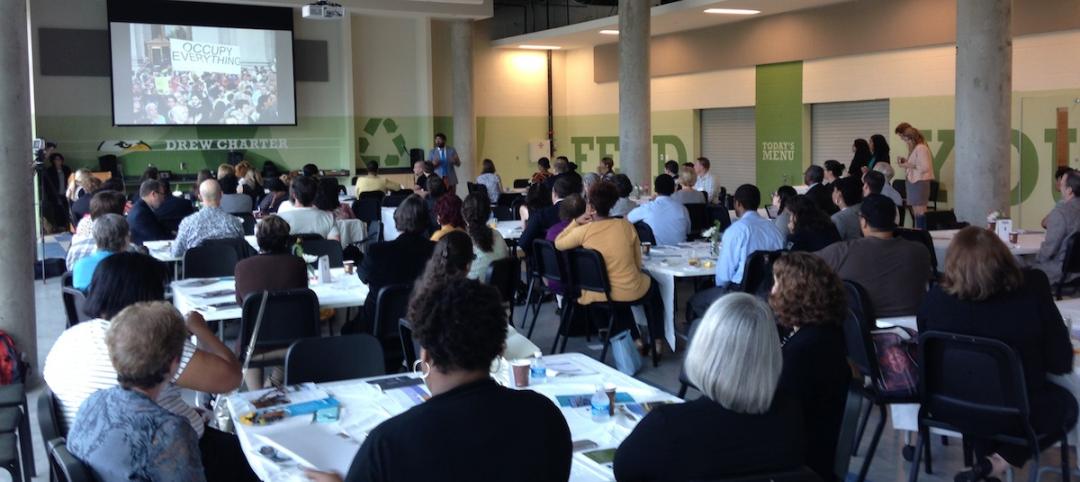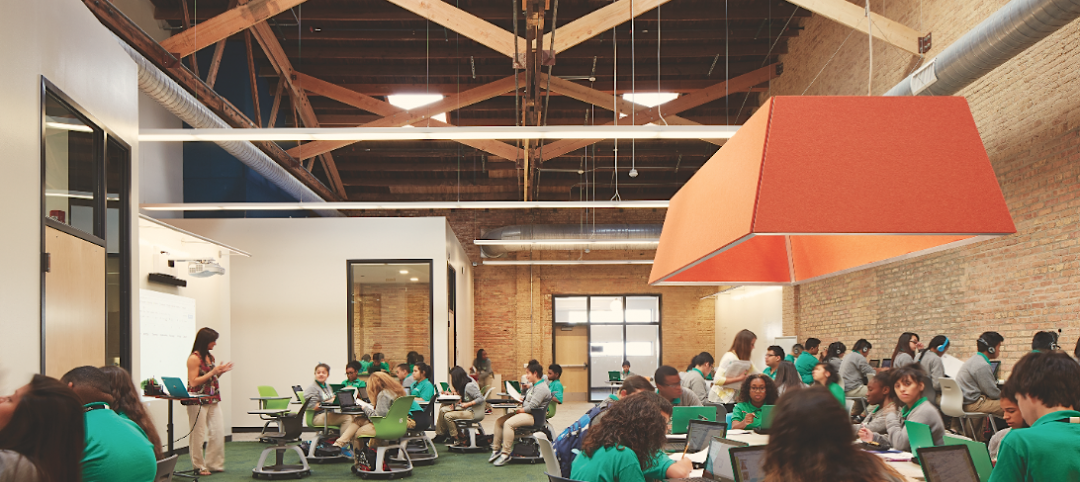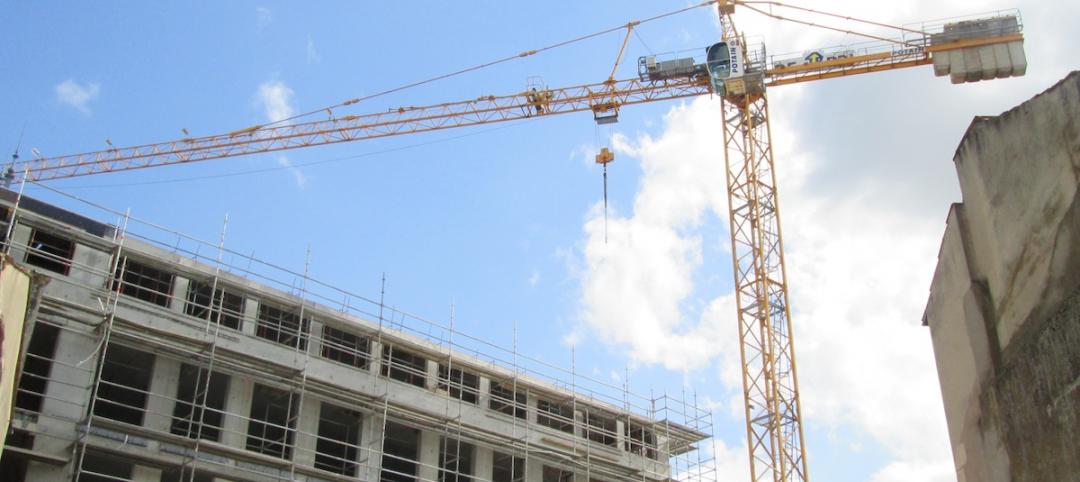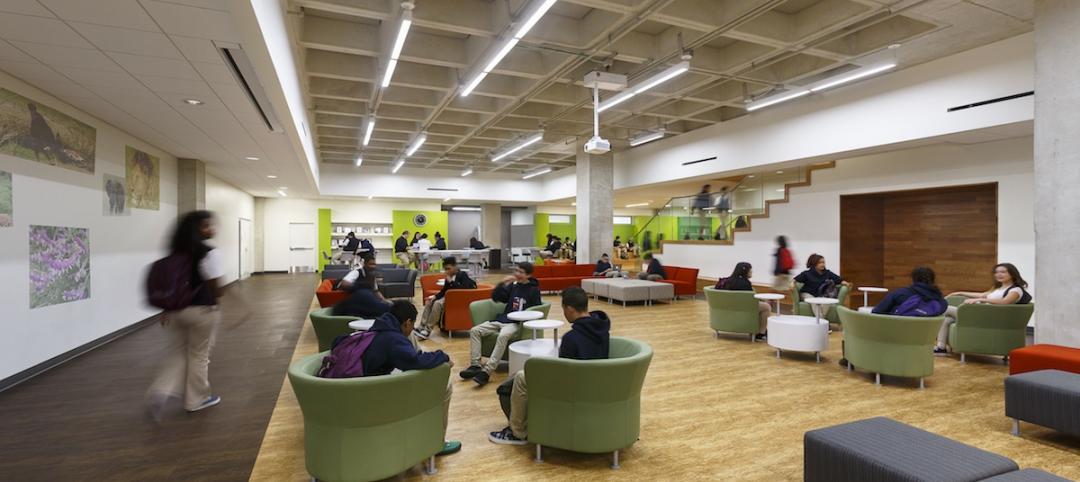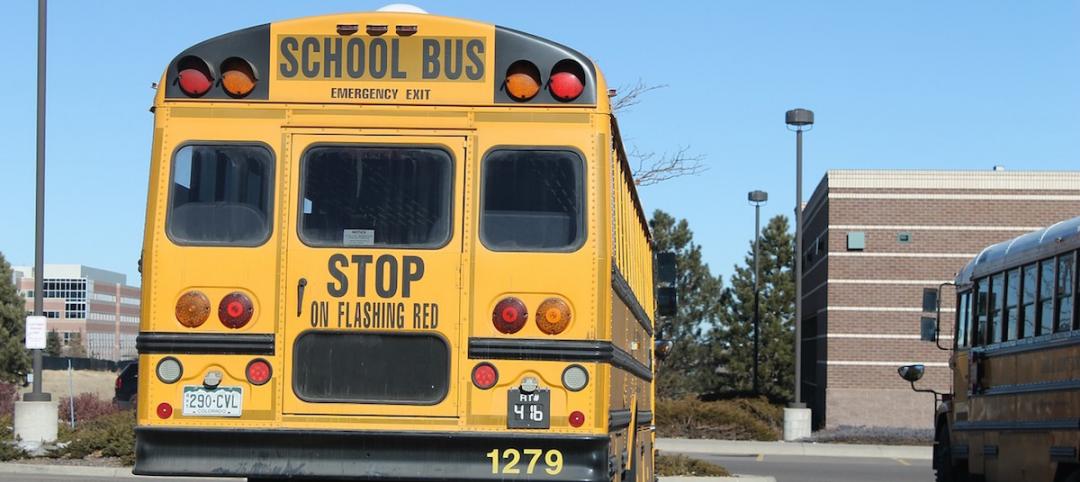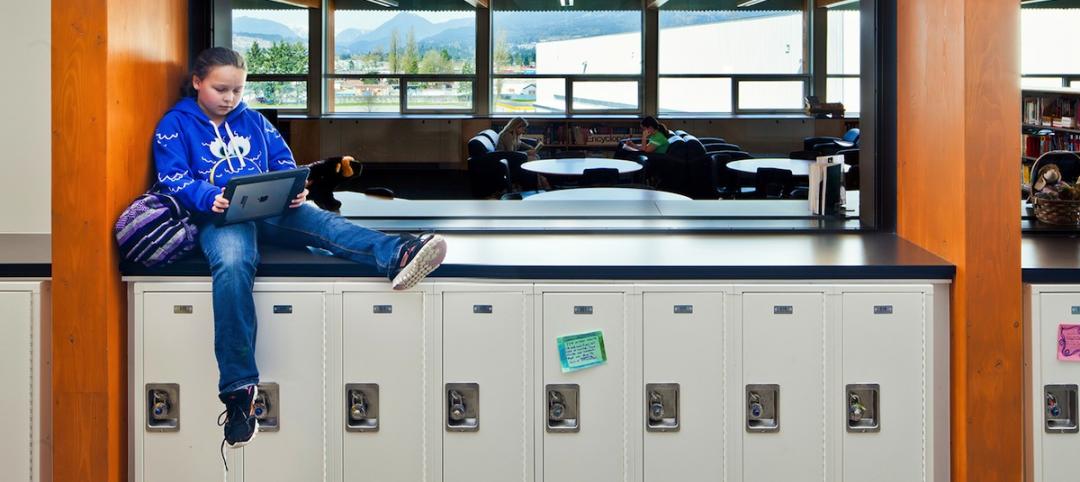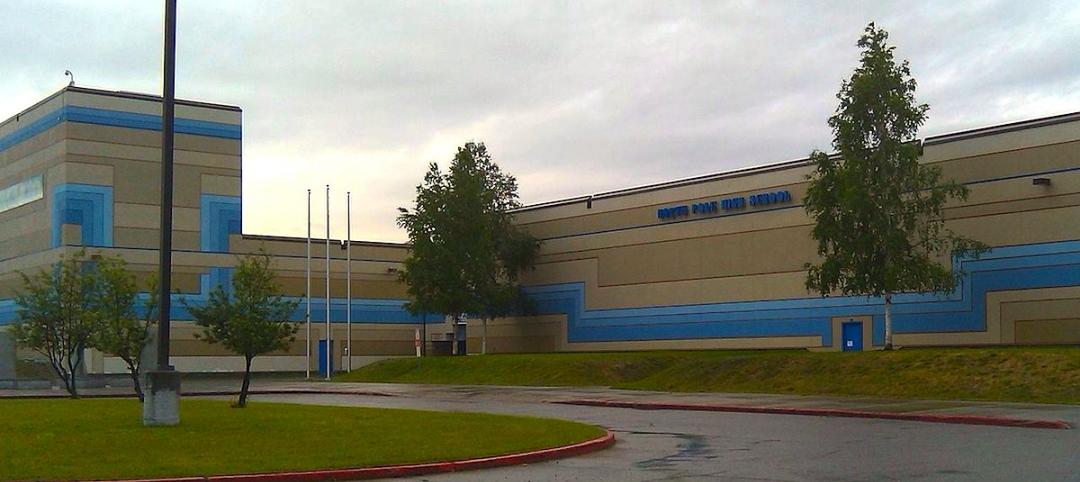Designed by Stantec, a Quaker high school is the first in the US to receive WELL Gold certification, which recognizes a commitment to occupants’ health and well-being. Part of the Sandy Spring Friends School (SSFS), the new Pen y Bryn Upper School serves students in grades 9 through 12. Stantec provided architecture, interior design, and engineering for the Upper School.
Founded in 1961, the SSFS campus houses multiple educational buildings for more than 650 students from preschool through 12th grade. SSFS sits on a pastoral 140-acre campus in Maryland, midway between Baltimore and Washington, D.C.
Stantec’s simple, elegant design is meant to align with the school’s Quaker values of simplicity, peace, integrity, community, equality, and stewardship. In the new Upper School, students and teachers have access to a variety of educational environments—traditional classrooms, open or closed collaboration areas, and social spaces—that offer dynamic lighting solutions and flexible, ergonomic furniture.
The design features a biophilic strategy involving both environmental elements and energy solutions. The building extends learning to the outdoors with a covered front porch beside a meditation garden, a sunny maker-space patio, and a roof terrace. Inside, expanses of floor-to-ceiling glass provide daylight and exterior views in the classrooms, collaboration areas, offices, and social areas. The interior also incorporates large areas of ash wood walls created from trees reclaimed onsite.
In addition to its WELL Gold design, the Upper School is engineered as a net zero energy-ready facility: The total amount of energy used by the building annually roughly equals the amount of renewable energy created on the site or nearby.
On the building team:
Owner: Sandy Spring Friends School
Design architect and architect of record: Stantec
MEP engineer: 2RW Consultants
Structural engineer: Keast & Hood
General contractor/construction manager: Keller Brothers, Inc.
Civil engineer: Stantec
Landscape architect: Brian J. Stephenson + Company
WELL building consultant: Delos Living
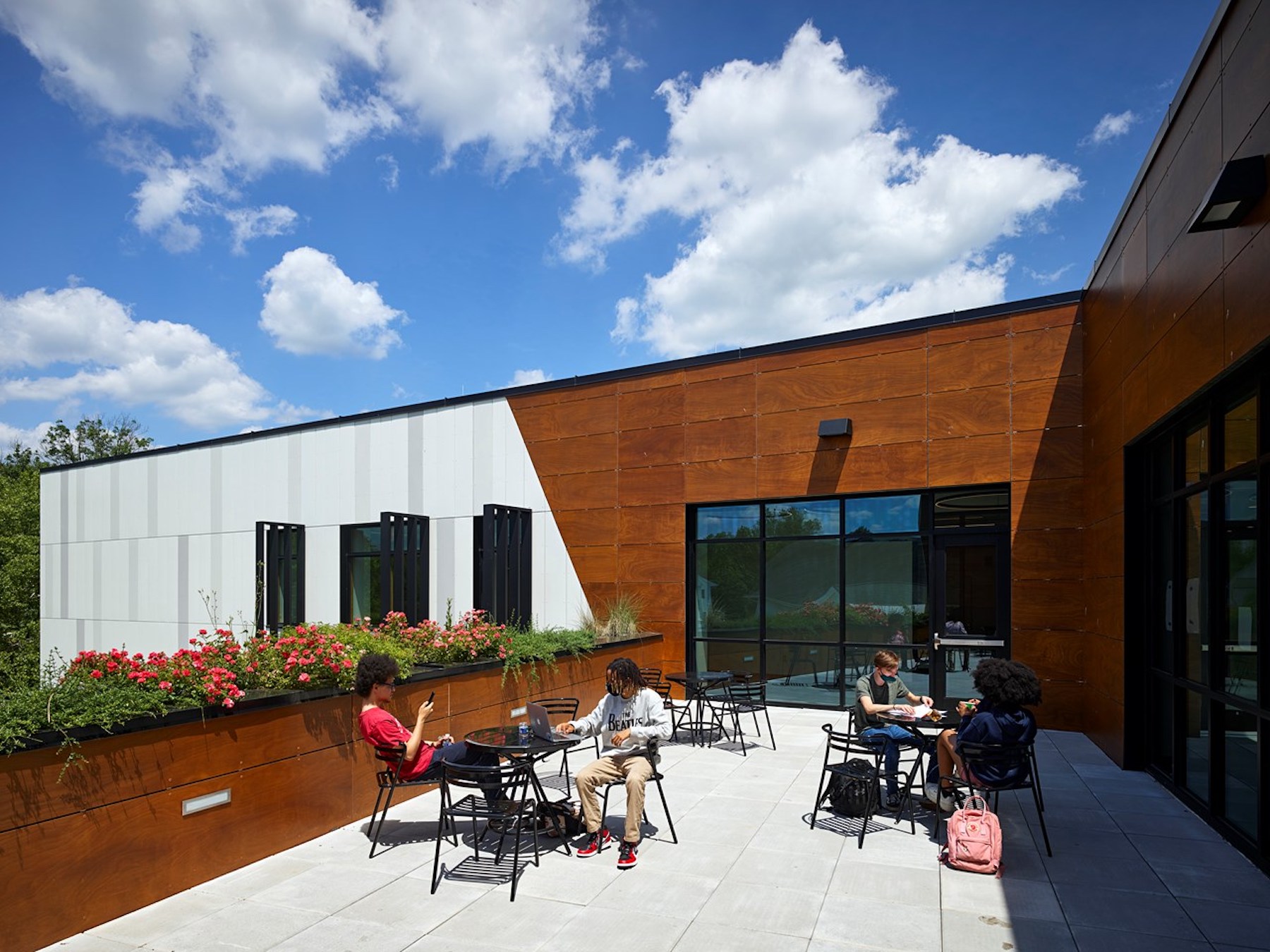
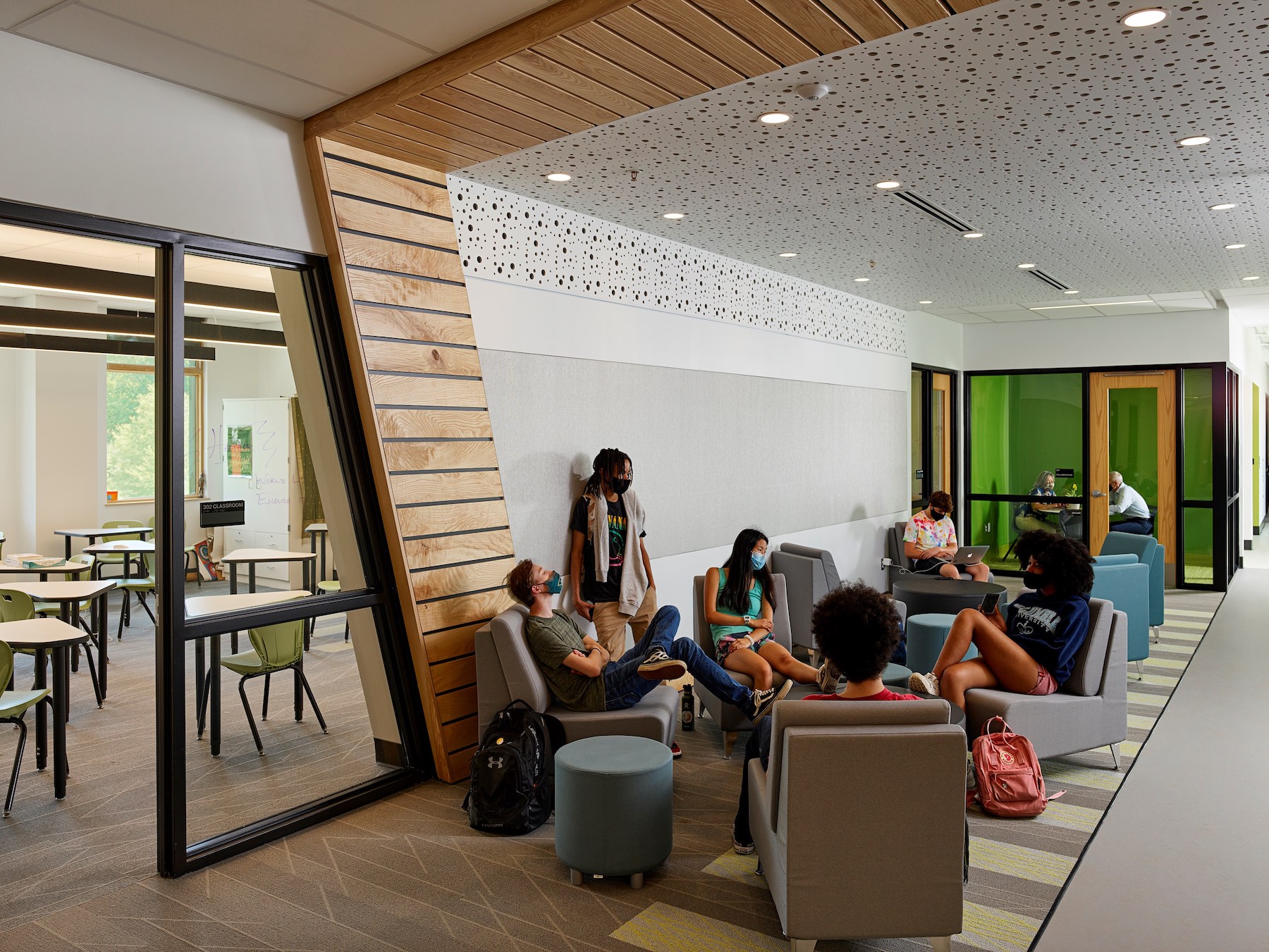
Related Stories
K-12 Schools | Nov 10, 2015
New York City opens SOM-designed net-zero school
The Kathleen Grimm School for Leadership and Sustainability at Sandy Ground will produce 662,500 kWh of energy, which will offset the amount of energy it consumes.
Designers | Sep 21, 2015
Can STEAM power the disruptive change needed in education?
Companies need entrepreneurial and creative workers that possess critical thinking skills that allow them to function in collaborative teams. STEAM (science, technology, engineering, arts, and mathematics) education might be the solution.
Giants 400 | Aug 7, 2015
K-12 SCHOOL SECTOR GIANTS: To succeed, school design must replicate real-world environments
Whether new or reconstructed, schools must meet new demands that emanate from the real world and rapidly adapt to different instructional and learning modes, according to BD+C's 2015 Giants 300 report.
Contractors | Jul 29, 2015
Consensus Construction Forecast: Double-digit growth expected for commercial sector in 2015, 2016
Despite the adverse weather conditions that curtailed design and construction activity in the first quarter of the year, the overall construction market has performed extremely well to date, according to AIA's latest Consensus Construction Forecast.
K-12 Schools | Jun 30, 2015
San Diego charter school finds home in existing public library building
The school is located on the sixth and seventh floors of a downtown public library and embraces flexible school days, internship opportunities, and project-based learning.
Codes and Standards | Jun 18, 2015
New document addresses school safety and security
In an effort to balance security and fire safety features within codes, standards and planning, NFPA hosted a two-day workshop, “School Safety, Codes and Security”, last December. The findings are now available in an NFPA report.
K-12 Schools | May 12, 2015
Bjarke Ingels completes Danish high school sports and arts expansion
By placing parts of the new building beneath the football fields, the students are able to walk through the sunken sports hall at the center of the school´s courtyard to the classrooms, cafeteria, and out to the main entrance at street level.
Sponsored | | May 11, 2015
Fire-rated glass separation helps merge new and old pools into a single connected aquatics center
Clear fire-rated glazing helps create a light-filled, safe space for student athletes and spectators in Niles, Illinois.
K-12 Schools | Apr 28, 2015
How to create an environment where students want to succeed
According to a 2014 Gallup poll, our school system not only kills children’s creativity, but also takes its toll on their motivation, writes Perkins+Will's Tinka Rogic.
K-12 Schools | Mar 22, 2015
Budget woes may lead to moratorium on school projects in Alaska
The bill would suspend 70% cost reimbursement from state to localities.


